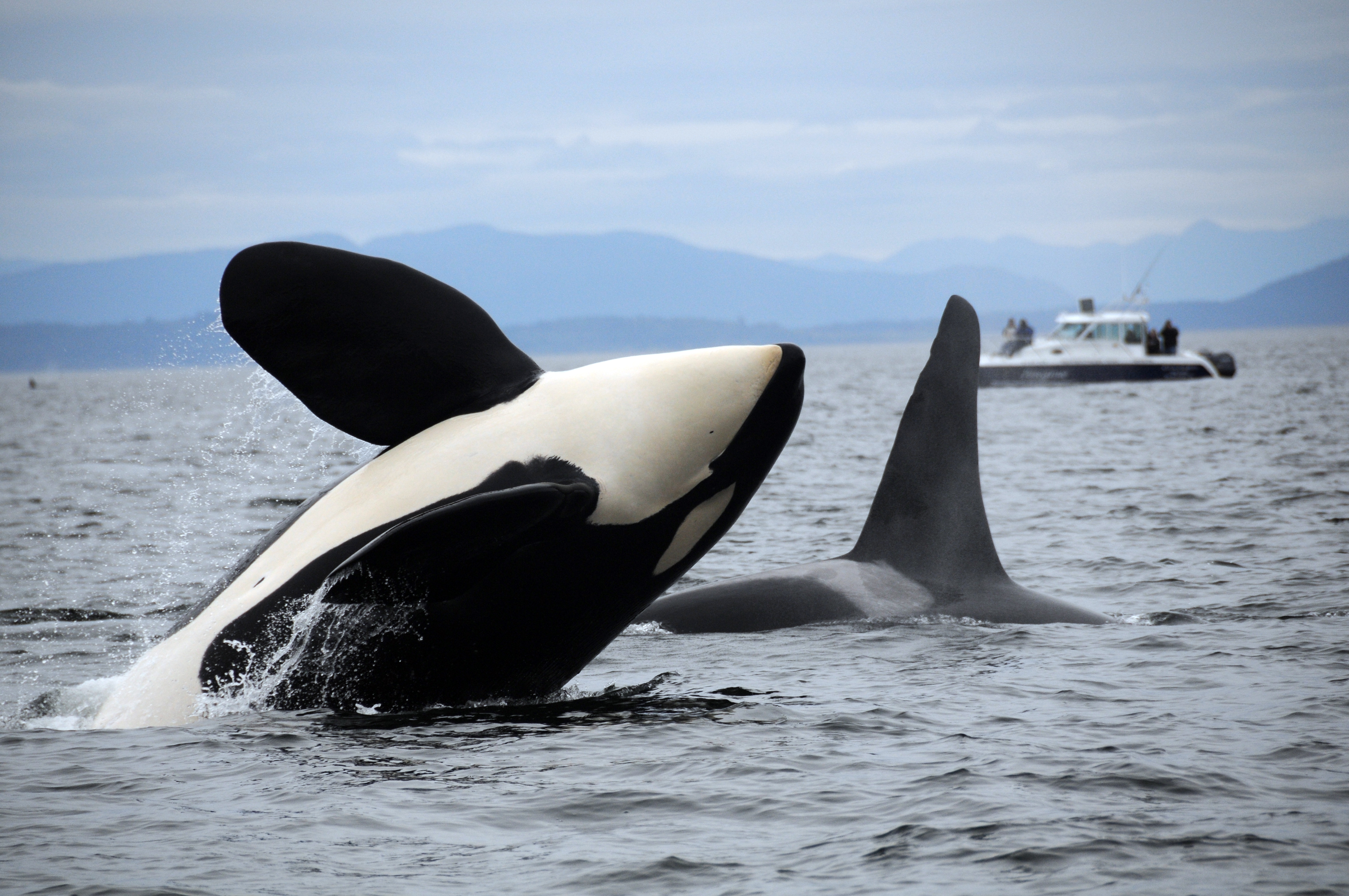Protecting whales during oil spills
Governor's directive
In 2018, Governor Inslee signed Executive Order 18-021, directing state agencies to take several immediate actions to benefit Southern Resident Killer Whales. One of these actions was to develop a curriculum for using the whale watching industry as Vessels of Opportunity (VOOs) during an oil spill. This curriculum plan was completed in April 2018 with input from our partners at Washington Department of Fish & Wildlife, U.S. Coast Guard, and National Oceanic Atmospheric Administration (NOAA). The goal for this curriculum is to broadly recruit, pre-register, equip, and train whale watching vessel owners to be able to safely keep Orca from entering an area with a major oil spill.
Why it matters
Every year, 20 billion gallons of oil is transported through and near Puget Sound and Salish Sea waterways, creating the risk of a major oil spill. Inbound oil tankers move crude oil to five major refineries in Puget Sound, which then moves the refined oil products to other destinations. These oil products are increasingly moved by railroad and petroleum pipelines along major rivers and transportation corridors, which often follow and cross over waterways.
Vessels of Opportunity Program
We're seeking vessel operators who would like to register their vessels and crew expertise in our Vessel of Opportunity Program. If you are a skilled vessel operator working in the whale research or whale watching industry and have a desire to help protect Washington's whale populations in the event of an oil spill, we're interested in your support for a statewide initiative.
Vessel operators can be trained to conduct wildlife surveillance and deterrence in the event of an oil spill. Vessels used during a response will be compensated by the spiller for the work conducted.
You can register to be a VOO.
Ensuring whales are safe during a spill
Protecting Southern Resident Killer Whatles during spills is a goal we and our stakeholders strive to achieve. One way to accomplish this is through the use of permits and regulations. We use deterrence to not only protect whales during an oil spill, but also to be consistent with federal laws. The Marine Mammal Protection Act (MMPA) prohibits harassing, harming, or killing marine mammals, but has an exemption for federal or state employees if the harassment to marine mammals is necessary for the health and safety of the animals or for human safety. The Endangered Species Act (ESA) has similar prohibitions, but does not have a specific exemption for federal and state employees.
The National Marine Fisheries Service has authorized Orca deterrence activities through a scientific research and enhancement permit held by NOAA’s Marine Mammal Health and Stranding Response Program. The permit is consistent with protections of the MMPA and ESA, and covers oil spill-related actions in Puget Sound and the Salish Sea. Under oversight by federal and state agencies and in accordance with the permitting requirements, we are building our capacity to implement tactics to protect Orcas from oil spills.
What's next
Working with our partners, NOAA’s National Marine Fisheries Service and the Washington Department of Fish and Wildlife, we will continue to expand this project..
Contact information
Brian MacDonald
Oil Spill Drill Specialist
Brian.MacDonald@ecy.wa.gov
360-742-8781


